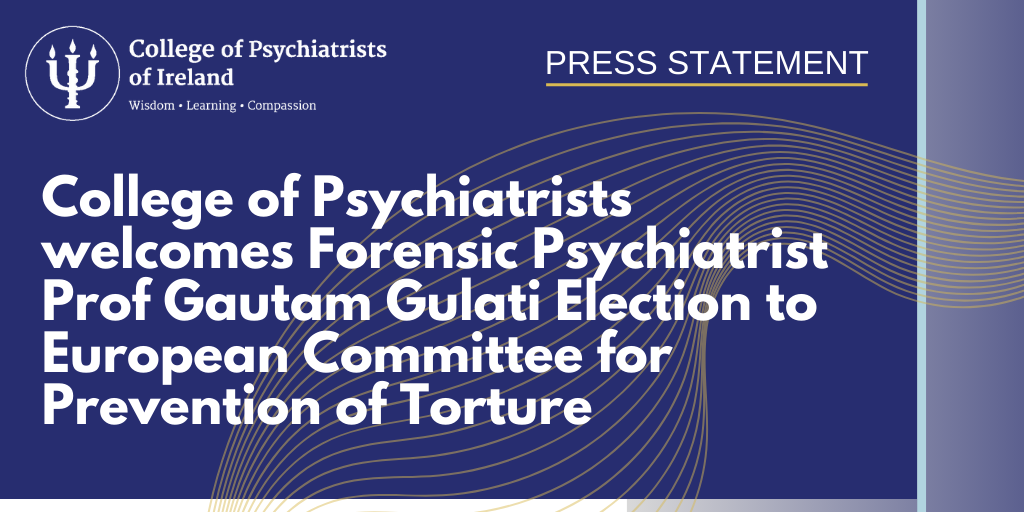Read the press statement in full below or via PDF here.
-
Dr Lorcan Martin voices grave concerns over ‘cruel’ proposed Mental Health Bill which would ‘torture’ patients
-
The College of Psychiatrists’ NCHD Conference, ‘Navigating Psychiatry in a Changing World: A Look at How We Can Embrace the Future’, takes place in Dublin today (Friday)
Friday February 21, 2025. The President of the College of Psychiatrists of Ireland has said that 2025 will be a “pivotal year” for mental health service provision here, as the legislative process continues for the Mental Health Bill (2024) and the Government considers potential changes in assisted dying legislation and continues its scrutiny of child and adolescent mental health services (CAMHS).
Dr Lorcan Martin, a consultant in general adult psychiatry, was speaking ahead of his address to non-consultant hospital doctors (NCHDs) in psychiatry at the College of Psychiatrists’ annual conference, ‘Navigating Psychiatry in a Changing World: A Look at How We Can Embrace the Future’, which takes place in Dublin today (Friday).
Dr Martin warned that the Mental Health Bill as currently proposed is “cruel” and would have a disastrous impact on patients and doctors. The Bill as proposed would allow for the involuntary hospitalisation of severely mentally ill patients as needed yet crucially would only give judges the power to commence involuntary treatment of those patients who lack insight and capacity.
“This will be a pivotal year for mental health service provision in Ireland with a number of pressing issues facing the new Government,” he said. “As College President, I cannot overstate the concerns we have regarding the proposed Mental Health Bill which, in its current form, is utterly cruel and will have a hugely detrimental effect on patients and their families. Indeed, if psychiatrists were to follow the legislation as proposed, it would amount to torture as ill patients would see treatment deprived or delayed.”
Article 3 of the European Convention on Human Rights (ECHR) states that “no one shall be subjected to torture or to inhuman or degrading treatment or punishment”. Furthermore, the ECHR makes no provision for derogation from Article 3, even in times of war or other public emergency threatening the life of the nation.
Dr Martin said that the right to autonomy is critically important, but it should not, and cannot, supersede the right to treatment for those who need it yet do not have the capacity and insight to request it.
He noted that the Bill allows for a 21-day window for involuntary treatment, but that only applies if someone poses a threat to the life or health of themselves or to another person. Dr Martin said that the vast majority of people who need to be hospitalised and treated involuntarily do not pose that risk, so they would be denied treatment under the proposed Bill.
Dr Martin added that the new Government now had a real opportunity to turn the dial on mental health service provision. “We have a chance now to properly address ongoing recruitment and retention issues, as well as doctor stress and burnout levels. The Government must also move to significantly increase resourcing and funding for mental health services in line with our national healthcare policy, Sláintecare.”
He said that the Government also needed to resist calls for the legalisation of assisted dying in Ireland. “It is critically important that we provide the requisite funding and resources to offer an optimal palliative and end of life care experience for patients and for their carers. Anything less would be an admission of failure for patients who need all the help they can get.”
Dr Martin confirmed that the College would shortly publish a proposal for new governance and management structures for CAMHS which would lay the foundations for a best-in-class service for future generations.







